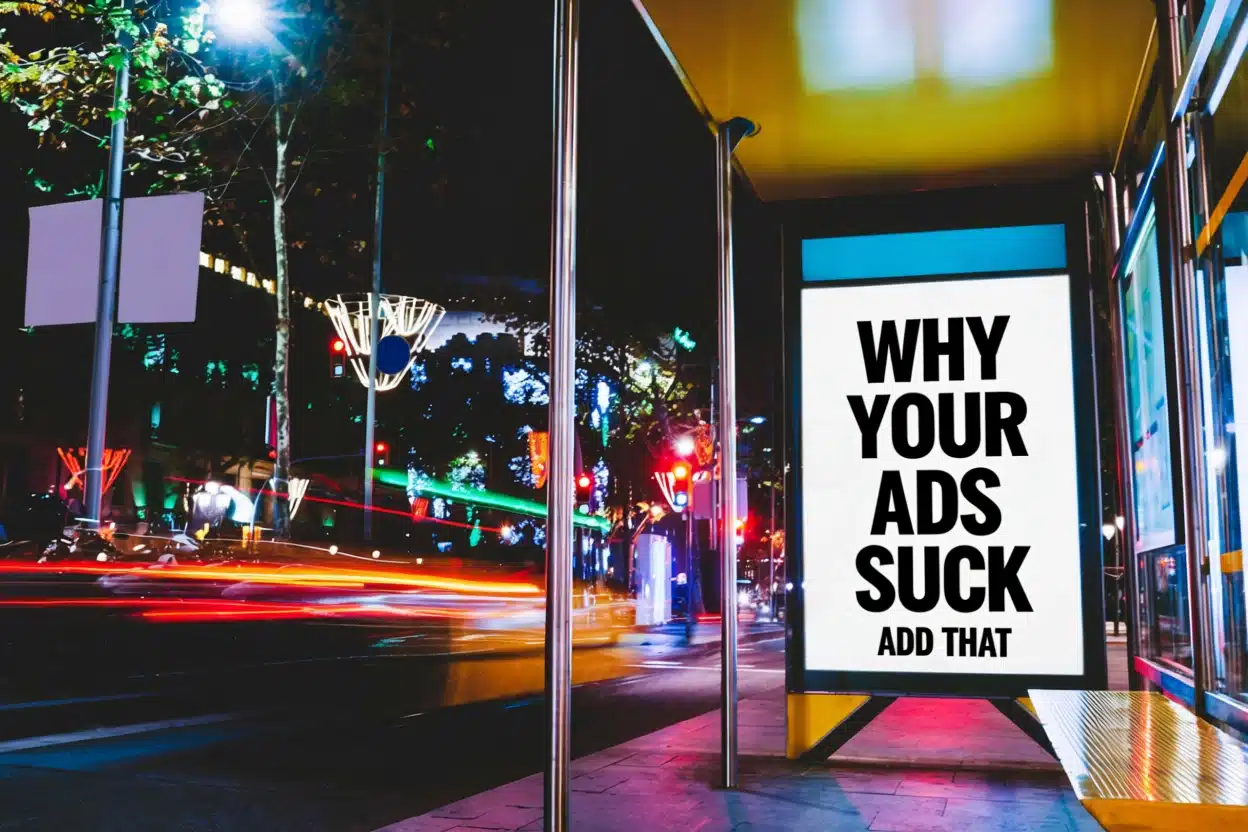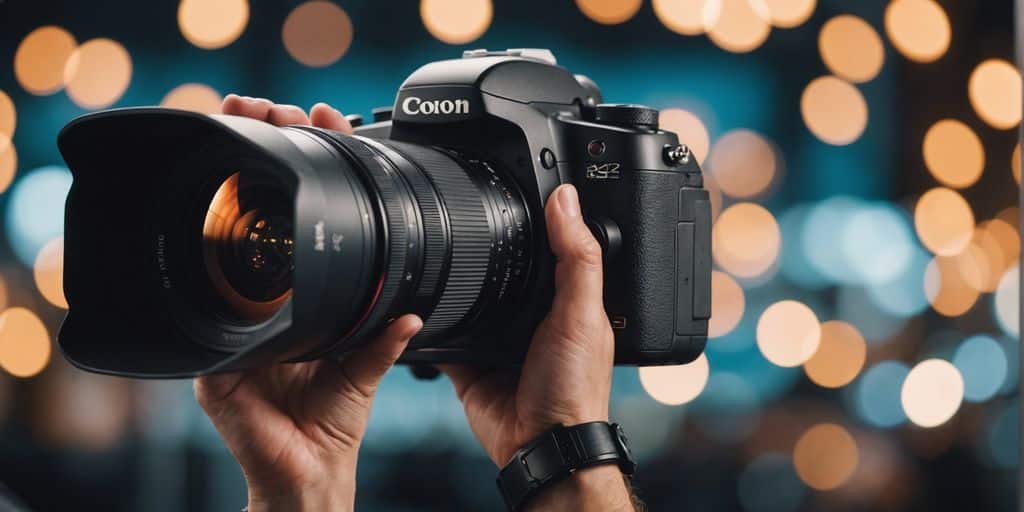🌟 Micro-Influencers: Small Size, Big ROI — Real-Life Case Studies
In the digital age, the power of influence is not solely in the hands of the giants. Micro-influencers, with their smaller but highly dedicated followings, are proving to be powerful allies for brands looking to enhance their return on investment. These everyday social media users, commanding niche audiences, often yield higher engagement and authentic connections than their macro counterparts.
Micro-influencers bridge the gap between brands and consumers with personalized and relatable content. Unlike macro-influencers with millions of faceless followers, micro-influencers offer genuine interactions and higher conversion rates through their closer ties to specific communities. Brands are increasingly turning to these passionate individuals to harness their ability to deliver cost-effective, organic campaigns that foster trust and loyalty.
🚀 In this article: We explore the might of micro-influencers through real-life case studies across various industries, demonstrating how they help brands achieve remarkable success. We'll delve into the benefits and strategies of collaborating with micro-influencers, the platforms facilitating these partnerships, and the challenges that come with harnessing their potential.
🔍 Understanding Micro-Influencers
Micro-influencers have emerged as an effective lynchpin of modern marketing strategies, offering a potent mix of authentic user-generated content and enhanced brand engagement. Known for their ability to forge genuine connections with niche audiences, these influencers often outperform their more renowned counterparts when it comes to engagement. Brands like Glossier have already harnessed the power of micro-influencers by opting to partner with everyday users, thus cultivating high engagement levels through relatable and authentic content. In fact, brands such as Naked and Thriving have reaped impressive rewards, achieving a staggering 215% ROI by leveraging micro-influencers to generate content that resonates on a personal level. By focusing on peer recommendations and authentic connections, micro-influencers enhance brand credibility and foster a more engaged community, making them an invaluable component of influencer marketing efforts.
📌 Definition of Micro-Influencers
A micro-influencer is typically a social media personality with a following between 1,000 and 100,000 individuals. Their content often focuses on niche areas that appeal to specific audiences, facilitating more personalized and relatable interactions. This niche approach allows them to engage more intimately with their followers—an advantage that builds trust and authenticity. Micro-influencers are particularly valuable to brands because they can effectively reach a hyper-specific, in-market audience, offering both higher engagement and better conversion rates. Unlike larger influencers, micro-influencers attract dedicated fanbases that interact more deeply with their content.
⚖️ Difference Between Micro- and Macro-Influencers
| Aspect | Micro-Influencers | Macro-Influencers |
|---|---|---|
| Follower Range | 1,000 – 10,000 (up to 100K) | 100K + |
| Typical Cost per Post | $100 – $500 | $5,000 + |
| Engagement Style | Highly personalized; often knows followers by name | Broader reach; less personal interaction |
| ROI Potential | High—cost-efficient with strong engagement | Depends on scale; typically higher spend |
⭐ Characteristics of Effective Micro-Influencers
- Their smaller, yet highly attentive followings are typically very niche or specialized, offering unique advantages for targeted marketing campaigns.
- Influence and credibility come through authentic connections that result in higher engagement rates.
- They allow businesses to resourcefully allocate budgets and collaborate with multiple influencers.
- They can reach both active and passive consumers globally, extending brand reach through personal connections.
🎯 The Impact of Micro-Influencers on Brand Success
Micro-influencers are reshaping the landscape of influencer marketing by leveraging authentic, relatable content that resonates deeply with their niche audiences. Unlike larger influencers, micro-influencers foster genuine connections with their followers, enabling them to deliver an impressive return on investment (ROI) for brands. For instance, Naked and Thriving saw a 215% ROI, highlighting the potential of micro-influencer collaborations. These influencers provide substantial contributions to user-generated content, which enhances marketing campaigns by offering authentic testimonials and diverse perspectives. Moreover, selecting micro-influencers whose values align with the brand's can cultivate long-term partnerships, transforming influencers into true brand ambassadors. In the case of MadeGood, strategic partnerships with micro-influencers achieved a campaign reach of 280K, underscoring the scalability of micro-influencer marketing efforts.
📈 High Engagement Rates
Brands that collaborate with micro-influencers often witness a 60% higher engagement rate. Their content fosters authentic consumer connections, leading to substantially higher engagement levels that translate into more effective campaigns.
The content created by micro-influencers fosters authentic consumer connections, leading to substantially higher engagement levels, which translate into more effective campaigns.
🤝 Authentic Connections with Niche Audiences
Micro-influencers excel at building authentic connections with niche audiences. Their smaller, dedicated followings mean their audiences are more invested and engaged with the content than the followers of larger influencers. These influencers tap into deeply interested groups, creating a direct line to consumers who are passionate and focused on specific lifestyle choices and hobbies. This direct connection proves powerful, enabling marketers to navigate through traditional marketing funnel stages more efficiently.
Case in Point: Genomelink achieved a 73% reduction in customer acquisition costs by partnering with micro-influencers who align closely with their brand values and audience interests.
💰 Enhanced Conversion Rates
Micro-influencer marketing is not only about engagement but also significantly boosts conversion rates, delivering substantial ROI. Businesses can earn up to $18 for every dollar spent on micro-influencers, showcasing the financial benefit of this strategy. Platforms like Instagram, TikTok, and X are pivotal for achieving these results, with robust engagement rates fostering enhanced conversions.
🌐 Benefits of Collaborating with Micro-Influencers
In today's dynamic marketing landscape, micro-influencers are proving to be valuable partners for brands aiming to maximize their outreach efficiently. Unlike traditional or larger influencers, micro-influencers typically have a smaller following but boast significantly higher engagement rates. This higher engagement is largely due to the authentic connections they form with niche audiences. By engaging micro-influencers in their campaigns, businesses can tap into highly specific audience segments, enhancing the relevance and impact of their marketing efforts.
💸 Cost-Effectiveness
One of the primary advantages of working with micro-influencers is their cost-effectiveness. While macro-influencers can demand fees of $5,000 or more per post, micro-influencers are often more affordable, with costs ranging from $100 to $500 per post. This significant cost difference allows brands to partner with several micro-influencers for the same price as one macro-influencer, thereby broadening the reach and diversification of their campaigns.
📣 Organic Resonance with Followers
Micro-influencers often enjoy strong relationships with their audiences, which are typically built on mutual trust and authenticity. Their followers view them as relatable figures, leading to higher levels of engagement with the content they produce. Unlike larger influencers who may have diluted engagement due to broader appeal, micro-influencers focus on carefully curating content that resonates directly with their audience.
🔒 Building Consumer Trust
Collaborating with micro-influencers can significantly bolster consumer trust—a crucial component in achieving marketing success. Studies show that a vast majority of consumers prefer influencer recommendations over traditional advertisements, with 92% finding them more credible. This trust is primarily due to the genuine relationships micro-influencers form with their audience. Influencer marketing remains an effective communication channel, fostering long-term customer relationships.
🏆 Case Studies in Various Industries
The power of micro-influencer marketing has been demonstrated across diverse industries, showcasing its important role in achieving marketing objectives. Businesses from fashion to technology utilize this strategy to form authentic connections with niche audiences and enhance brand reputation. Unlike traditional marketing methods, micro-influencer campaigns typically involve leveraging smaller, yet highly engaged communities, leading to improved engagement rates and conversion metrics. For instance, ABN AMRO, a major financial institution, has successfully used micro-influencers to increase card usage at local businesses, while beauty brand Glossier builds brand authenticity and engagement by connecting with everyday users through social media. These case studies illustrate that incorporating micro-influencers into your marketing strategy can drive significant business value, making them a worthwhile investment for many sectors.
🛒 E-commerce Success Stories
Glossier encouraged micro-influencers—often real customers—to share genuine, relatable user-generated content. The result? Elevated brand awareness and sky-high engagement rates.
In the e-commerce realm, micro-influencers have become essential for brands looking to enhance their visibility and credibility. Glossier, a popular beauty brand, serves as a prime example. The company employed an innovative approach by encouraging micro-influencers—often regular users of their products—to share genuine and relatable user-generated content. This strategy not only enhanced brand awareness but also significantly boosted engagement rates. Unlike larger influencers, micro-influencers provided authentic peer recommendations, effectively increasing Glossier's appeal among niche audiences. This approach resulted in successful influencer campaigns that transcended traditional marketing models, further solidifying Glossier's brand authenticity and leading to sustained customer engagement and loyalty.
💻 Impact in the Tech Sector
The tech industry finds immense value in leveraging micro-influencers, who often serve as knowledgeable industry leaders sharing insights and trends within targeted demographics. Notion, a prominent productivity and project management tool, exemplifies success in this area by engaging micro-influencers on platforms like LinkedIn and Twitter. These influencers, being well-versed in tech, tailor content to engage tech-savvy individuals interested in productivity and innovation. Through these influencers, Notion strategically enhanced brand visibility and credibility among professionals, establishing thought leadership within the tech sector. This approach highlights the importance of community co-creation content, fostering authentic engagement, and ultimately providing significant returns on investment in influencer marketing.
🏢 B2B Marketing Campaigns
Micro-influencer marketing is increasingly recognized for its effectiveness in B2B marketing campaigns, providing a higher return on investment compared to traditional advertising methods. These campaigns often lead to long-term results, including enhanced brand awareness and stronger customer loyalty. By forming partnerships with micro-influencers, B2B brands can maximize their marketing budgets while accessing actively engaged audiences that offer multiplier effects. Due to the manageable scale of their following, micro-influencers allow brands to effectively track campaign performance and results. This targeted approach facilitates community engagement and thought leadership, essential components in B2B marketing strategies. In turn, brands see improved lead generation and significant boosts in their overall marketing efforts.
🧭 Strategic Approaches to Micro-Influencer Marketing
Micro-influencer marketing has emerged as a powerful strategy for brands aiming to boost awareness and drive conversions. By targeting smaller influencers who have established authentic connections with their audiences, brands can engage deeply and create more personalized marketing experiences. A strategic approach involves selecting the right influencers who align with the brand's values and goals. Emphasizing the quality of content over quantity, micro-influencers are known for their thoughtful and genuine promotions, unlike larger influencers swamped with multiple partnerships. This strategy often includes building long-term, meaningful relationships with micro-influencers, which can enhance the brand's authenticity and sustain growth over time. Additionally, precise performance tracking helps brands measure success, refine their influencer marketing efforts, and ensure a significant return on investment.
🎯 Creating Targeted Marketing Strategies
- Collaborate with micro-influencers whose follower demographics align perfectly with your objectives.
- Leverage influencers’ unique knowledge of their communities to craft resonant content.
- Track conversion rates via custom promo codes and adjust campaigns swiftly.
📢 Maximizing Engagement and Brand Awareness
Maximizing engagement and brand awareness through micro-influencers is a highly effective strategy. These influencers offer brands access to new, engaged audiences who are aligned with the brand’s niche. The personal connections micro-influencers forge with followers often lead to higher engagement rates, surpassing those of larger influencers. This, in turn, drives meaningful interactions and conversations around the brand's offerings.
| Key Metric | Why It Matters |
|---|---|
| Average Engagement Rate | Indicates depth of audience interaction and content resonance. |
| Audience Sentiment | Measures perception and brand affinity post-campaign. |
| ROI per Dollar Spent | Businesses observe up to $5.78 earned for every dollar invested. |
🛡️ Managing Reputation with Precision
Micro-influencers play an essential role in managing a brand's reputation due to their authentic engagement with niche audiences. Their ability to provide genuine endorsements is highly valued by followers, enhancing the brand's credibility and public perception. Brands focusing on precision targeting through micro-influencers benefit from a more personalized and credible outreach compared to broader macro-influencer campaigns.
🔧 Tools and Platforms for Effective Collaboration
In today's dynamic digital landscape, micro-influencer marketing campaigns necessitate efficient tools to manage collaborations. Platforms like Grin and Upfluence have become indispensable, allowing marketers to engage with a multitude of small influencers seamlessly. These platforms offer critical features such as performance metrics insights and streamlined payment processes.
🛠️ Utilizing Influencer Marketing Platforms
Influencer marketing platforms are critical in augmenting campaign transparency and trackability, especially for micro-influencer collaborations. These platforms incorporate tools like voucher codes and tracking links, which empower brands to pursue data-driven decisions aligned with business objectives.
🤝 Developing Strategic Partnerships
Developing strategic partnerships is at the core of a successful influencer marketing strategy. Establishing these partnerships allows brands to amplify their campaign effectiveness and achieve consistent returns on investment. It begins with a clear communication of content briefs and key brand messaging to form a structured partnership with influencers.
⚠️ Overcoming Challenges in Micro-Influencer Marketing
🔍 Finding Authentic Influencers
Identifying the right micro-influencers is pivotal in achieving successful marketing outcomes. Micro-influencers, with their follower counts between 1,000 to 100,000, possess a unique capacity to engage niche audiences effectively.
🎨 Maintaining Consistent Brand Messaging
Consistency in brand messaging is essential in any influencer campaign, and it requires a delicate balance of guidance and creative freedom for influencers. Providing micro-influencers with a clear content brief that outlines the key messaging, tone, and brand values helps maintain brand consistency across various collaborations.
















